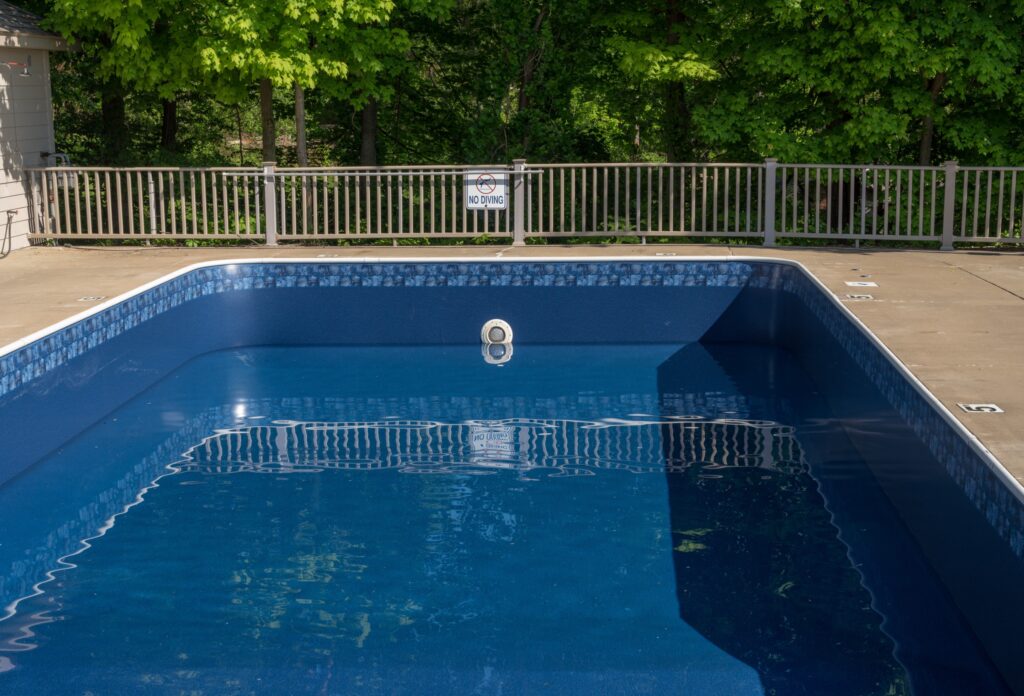Ever hear someone say, “I have a vinyl pool” and wonder what that means? Ever think, “how can a pool be made of vinyl?” The answer lies in the material used to line the interior of the pool structure and physically hold the water. A vinyl liner is made up of flexible PVC that has been printed with a decorative pattern and then sealed with a protective coating. That protective coating is what prevents UV rays, pool chemicals, and other organics from fading or discoloration. Vinyl liner swimming pools have gained popularity in recent years due to their durability, flexibility in design, and affordability.
Construction and Customization
What sets vinyl liner swimming pools apart from other types of swimming pools is their customizability. Steel or panels allow a homeowner to choose any shape and size for their swimming pool. A track is then bolted to the tops of the panels for the vinyl liner to hang. A custom liner is then made from various pieces, similar to how clothing is sewn together, to fit that specific pool shape. The flexibility and stretch factor within the liner, thanks to plasticizers, make for a perfect fit.
Affordability and Installation

Vinyl pools can be made in many different colors and patterns
One significant advantage of vinyl liner swimming pools is their affordability in comparison to other types of swimming pools, such as concrete or fiberglass. The materials used to build a vinyl liner swimming pool are less expensive than those used for other types of pools, and the installation process is typically faster and requires less heavy equipment, which helps reduce costs.
Low-Maintenance Requirements
Another advantage of vinyl liner swimming pools is their low-maintenance requirements. The vinyl liner is highly resistant to algae growth, which means it requires less frequent cleaning and maintenance than concrete or plaster pool surfaces. Additionally, vinyl liner pools are less prone to developing major structural issues, which can be expensive and time-consuming to repair.
Potential Issues
Despite their benefits, vinyl liner swimming pools do have some potential downsides that should be considered before making a decision. The vinyl liner is not as durable as other pool surfaces, such as concrete or fiberglass, and can be prone to punctures and tears, especially if sharp objects are introduced into the pool. Additionally, vinyl liners can fade over time due to exposure to the sun and other environmental factors.
Another potential issue with vinyl liner swimming pools is their susceptibility to damage from pool chemicals. While vinyl liners are designed to be resistant to the effects of chlorine and other pool chemicals, exposure to high levels of these chemicals can cause the liner to deteriorate or become discolored. Over several years, the seal coating wears down, causing the inevitable need to replace the liner. While it is an expense, it is also an opportunity for a small facelift every 8-12 years.
